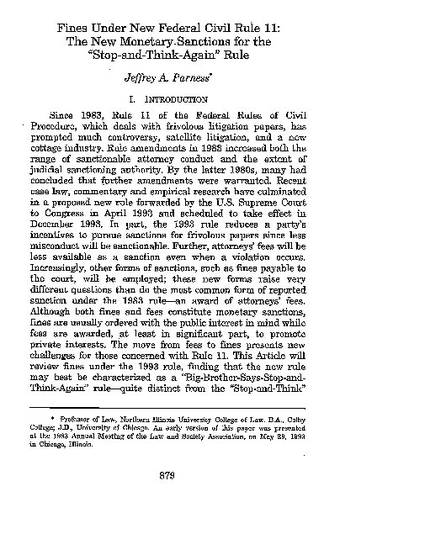
The 1983 amendments to Federal Rule of Civil Procedure Rule 11, which dealt with frivolous litigation papers, prompted much controversy, satellite litigation, and a new cottage industry, Rule amendments in 1983 increased both the range of sanctionable attorney conduct and the extent of judicial sanctionable authority. By the latter 1980s, many concluded that further amendments were warranted. Case law, commentary and empirical research culminated in a new rule which took effect in December, 1993. In part, the 1993 Rule reduces a party's incentives to pursue sanctions for frivolous papers since less misconduct will be sanctionable. Further, attorney's fees will be less available as a sanction even when a violation occurs. Other forms of sanctions, such as a fine payable to the court, will be employed. These new forms raise very different questions than did the most common form of sanction under the 1983 Rule-an award of attorney's fees. Although both fines and fees constitute monetary sanctions, fines are usually ordered with the public interest in mind. Fees are awarded, at least in significant part, to promote private interests. The move from fees to fines presents new challenges for those governed by Rule 11. This article reviews fines under the 1993 Rule, finding that the new rule may best be characterized as "Big-Brother-Says-Stop-and-Think-Again" rule-quite distinct from the "Stop-and-Think" rule of 1983.